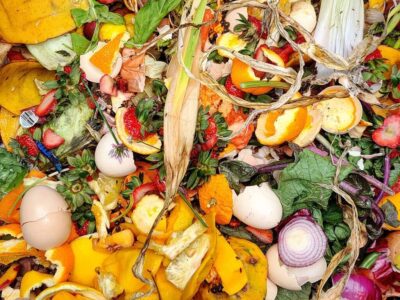
Recent M.S. in Sustainability Management graduate Luke Apicella works as an impact investor in the Office of Corporate Social Responsibility at Prudential. In this role, he provides investment recommendations based on social, environmental and financial merits. Luke credits the program with giving him skills to analyze actual deals, furthering his passion for finding ways to profit within “nature’s ability to regenerate ecosystems and resources.”
1. What is your current job and what are the responsibilities associated with your position?
In 2007, I joined an innovative investment group within Prudential’s Office of Corporate Social Responsibility and I’ve been an impact investor with them ever since. Back then, in many ways, it was the ground floor of the industry. Fast forward to 2014, and our group, known as Prudential Impact Investments, announced at the White House that we’ll grow our portfolio to $1 billion. Impact investors place capital into economically viable solutions to intentionally address social and environmental issues. I’m responsible for sourcing investments; analyzing their social, environmental, and financial merits; recommending the investments; and managing them to succeed. I currently recommend about 5 new investments a year and manage approximately 25.
2. What drew you to the Master of Science in Sustainability Management program?
Our deal pipeline drew me into the program. More and more investments had value propositions based on sophisticated sustainability concepts. I looked for an educational program that could quickly orient me to the over-arching themes and current underpinnings of sustainability. I found this in the program’s integrative courses like Sustainability Management. I also wanted to build my network with scientists and professors at the Earth Institute to access expertise in specific disciplines. I figured this would prove invaluable when evaluating the reasonability of investment ideas, such as a startup organic fertilizer business.
3. What are some examples of how you have applied something specific you have learned in the program thus far to your job?
I’ve successfully paired up coursework to better analyze actual deals. For example, when evaluating an investment fund that wanted to change how energy efficiency projects are financed in commercial buildings, I registered to take the Analysis of Energy Efficiency course taught by Luke Falk. Professor Falk talked about the building’s physical and equipment components that influence energy use, what tools are used to forecast energy savings, and the predictability, profitability, and efficiency of such measures. Another time I directly applied my education to an opportunity at work was during Sustainable Agriculture (taught by Bruce Kahn), which was taught as a master’s seminar by engaging in group-based research assignments. In one project I focused on whether the financial carbon markets would mitigate the alarming deforestation trend. Our research revealed the scale and maturity of the forest credit market, which was helpful for analyzing a REDD+ carbon credit company.
4. What inspired you to work in sustainability?
My ideals for sustainability are deeply ingrained. My father was an environmental engineer who instilled an understanding of the ramifications of pollution; I have an early memory of learning what happens when trash is thrown into a sewer. My mother was a psychologist and shared the challenges people face with unsupportive social surroundings and the consequences that can ensue. I’ve used my academic journey to explore how to turn problems into opportunities. All the academic theory – Garrett Hardin’s Tragedy of the Commons in undergrad, Paul Romer’s framework for rules in business school, and Professor Travis Bradford’s lessons on “thinking in systems” in his Energy Markets and Innovation course in this master’s program – has led me to understand how we got here and how we’re likely to change.
5. Why do you think sustainability is important?
I believe in the “sustainability” philosophy that we should enjoy our lives within nature’s ability to regenerate ecosystems and resources. There are a number of reasons to believe this, for moral reasons as stewards for future generations or as self-interested people who want to meet our own present and future needs. Following this philosophy requires knowing and respecting the earth’s constraints – for example, knowing the limits of carbon dioxide in atmosphere before climate change occurs. An increasing number of companies are adopting these constraints as they buy and sell products/services. We’re seeing in several areas that the more sustainable choice has become the more economic choice, such as solar power surpassing grid parity. As an investor I try to predict whether the entrepreneurs who consider the constraints in their business solutions will develop competitive advantages over the products/services they’re trying to replace.
6. What do you think is the most beneficial aspect of the MSSM program with regard to your career?
The growing popularity of the MSSM program and the diversity of students it attracts are indicators that business is evolving with this philosophy. The program boosted my career because my professors curated an innumerable amount of information down to what’s relevant. Now I’m better prepared to attract and deploy capital into companies and projects. I hope, and expect, this will influence our sustainability.
The M.S. in Sustainability Management, co-sponsored by the Earth Institute and Columbia’s School of Continuing Education, trains students to tackle complex and pressing environmental and managerial challenges. The program requires the successful completion of 36 credit points. Those credit points are divided among five comprehensive content areas: integrative sustainability management, economics and quantitative analysis, the physical dimensions of sustainability, the public policy environment of sustainability management, and general and financial management. Visit our website to learn more.



